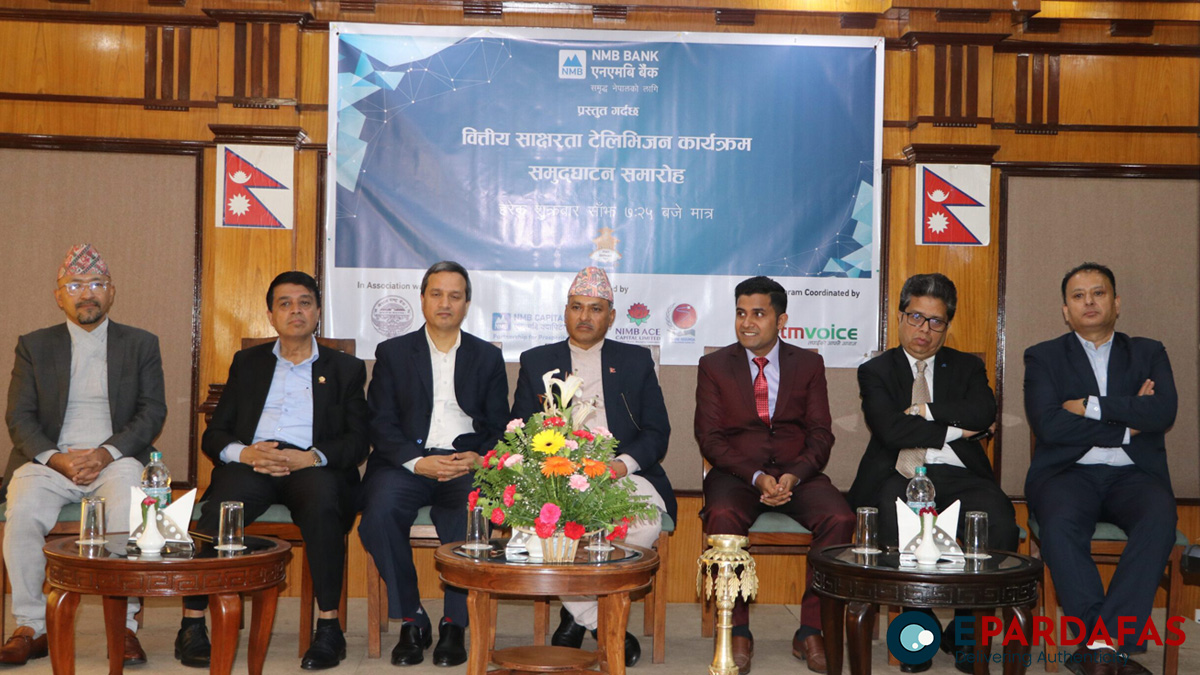
NRB Governor Emphasizes Importance of Financial Literacy in the Digital Age

In light of the increasing adoption of technology in financial transactions, Nepal Rastra Bank (NRB) Governor Maha Prasad Adhikari has underscored the significance of enhancing financial literacy among the public. The governor emphasized that as digital payment methods, including those via computers and mobile devices, continue to grow, it is imperative to educate citizens about financial literacy to ensure the secure utilization of such platforms.
To address this need, the launch of the Financial Literacy Television Programme, scheduled to air on Nepal Television at 7:25 pm every Friday, has been announced. Governor Adhikari inaugurated the program and expressed the importance of informed financial decision-making in an era marked by technological advancement.
“The widespread use of digital payment methods calls for greater financial literacy among citizens,” said Adhikari. He further highlighted that banks and financial institutions have introduced various digital services due to technological progress, and promoting financial literacy becomes a crucial tool to help the masses comprehend the features and safe practices associated with such services.
In response to the evolving landscape, the NRB has formulated and implemented fresh guidelines aimed at enhancing financial literacy across the country.
Chandra Prasad Dhakal, from the Federation of Nepalese Chambers of Commerce and Industry, echoed the importance of promoting financial literacy. Dhakal emphasized that the positive aspects of Nepal’s economy, such as increased revenue and tourist arrivals, along with reduced bank interest rates, make it even more critical to educate citizens about prudent financial management.
Sunil KC, Chair of the Nepal Bankers Association, reiterated that enhancing financial literacy will contribute to the overall growth of both the banking sector and the industrial domain. KC highlighted the substantial financial contributions made by the banking and financial sector to the government, amounting to Rs 40 billion annually, as well as their role in providing employment opportunities for around 100,000 individuals.
In an era where technological advancements are reshaping the financial landscape, the call for increased financial literacy assumes a central role in empowering citizens to navigate the complexities of modern financial services securely and confidently.












Comments